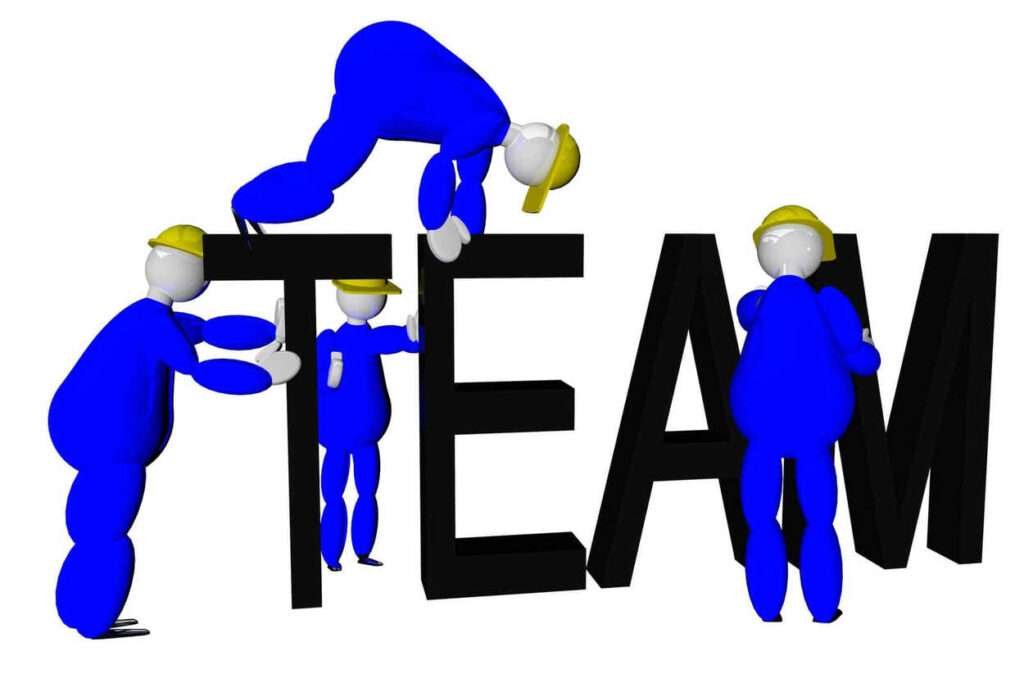Workplace Performance Profit and Kindness
Employee Mental Health, Performance, Profit & Kindness Kindness is a…
Employee Mental Health, Performance, Profit & Kindness
Kindness is a powerful tool that can boost profits, workplace performance, mental health, and happiness. When employees feel valued and respected, they are more likely to be engaged and productive. They are also more likely to be innovative and creative, which can lead to new ideas and solutions that can benefit the company.
In addition, kindness can help to reduce stress and burnout, which can improve employee health and well-being. When employees are healthy and happy, they are more likely to be present and engaged at work, which can lead to better performance.
Listen to Today’s Podcast
Want to listen to listen instead of reading? No Problem.
Click Here to Listen to Today’s Podcast!
Welcome to The 30 Day Kindness Challenge, Day 19.
If you’re new to this, or if you’re just joining us today, here’s what we’ve been doing. Every day in November, I’m doing a short podcast about kindness. I’ll talk about some kindness facts and give you a kindness challenge.
Today, we’re going to talk about how kindness can boost profits, workplace performance, mental health, and happiness.
There are many ways to show kindness to employees. Here are a few examples:
- Appreciation: Take the time to thank employees for their hard work. Let them know that you appreciate their contributions to the company.
- Empathy: Listen to employees’ concerns and try to understand their perspective. Be supportive and understanding, even when you disagree with them.
- Respect: Treat employees with respect, regardless of their position or title.
- Fairness: Be fair and consistent in your treatment of employees.
Being kind to employees has numerous positive effects on the workplace. Research shows that kind workplaces are more productive, have happier employees, and experience less turnover. Kindness also improves employees’ mental health and happiness.
When employees feel valued and respected, they are more engaged and have a sense of belonging, reducing stress and anxiety. Kindness also benefits businesses by increasing profits and attracting top talent. To improve the workplace and create a happier environment, show kindness to your employees.

Team Performance, Mental Health, Kindness & Profit
In today’s competitive business world, it’s more important than ever to find ways to improve performance and increase profits. One often overlooked way to do this is by practicing kindness.
That’s right, kindness. It may seem counterintuitive, but studies have shown that being kind can actually lead to improved performance and increased profits.
For example, one study found that employees who were treated with kindness by their managers were more productive and had higher levels of job satisfaction. Another study found that companies with a culture of kindness were more profitable than those without.
Improved Performance and Increased Profits
So, how does kindness lead to improved performance and increased profits? There are a few ways.
- First, kindness creates a positive and supportive work environment. When employees feel valued and respected, they are more likely to be engaged and productive. They are also more likely to go the extra mile for their colleagues and their company.
- Second, kindness reduces stress. When employees are stressed, they are less likely to be focused and productive. Kindness can help to reduce stress levels, which can lead to improved performance.
- Third, kindness fosters cooperation. When employees are kind to each other, they are more likely to work together and collaborate. This can lead to new ideas and innovations, which can boost profits.
So, if you’re looking for ways to improve performance and increase profits, don’t forget the power of kindness. A little kindness can go a long way.

Ways to Boost Performance and Profit With Kindness:
- Be respectful and appreciative of your employees. Let them know that you value their contributions and that you appreciate their hard work.
- Create a positive and supportive work environment. Make sure that your employees feel comfortable coming to you with questions or concerns.
- Resolve conflicts quickly and fairly. Don’t let grudges or resentments fester.
- Celebrate successes. Take the time to recognize your employees’ accomplishments.
- Be a role model. Show your employees how you want them to treat each other.
By practicing kindness, you can create a positive and productive work environment that will lead to improved performance and increased profits.
Importance of Kindness in Leadership
Harvard Business School professor Boris Groysberg and independent researcher Susan Seligson discussed leadership during the COVID-19 pandemic and the unique challenges, such as remote work and homeschooling, as well as the importance of kindness for leaders.
Kindness Is Essential for Employee Well-Being
Kindness is essential for employee well-being and effective leadership, especially during challenging times. Simple acts of kindness can have a significant impact on the remote workplace, boosting morale and reducing stress levels. Kind bosses increase employee morale, reduce absenteeism, and boost employee retention. Developing kindness as a leadership skill can improve mental health and performance.
Gallup’s Focus on Well-Being
Gallup has been studying well-being since 2006 with its Gallup World Poll, which tracks lives globally. The poll reveals that life evaluation metrics can tell us more than income. For example, GDP per capita has been rising in some countries, but life evaluation has been declining. Additionally, there has been a consistent rise in worry, stress, anger, pain, and sadness worldwide.

The Importance of Well-Being
Well-being inequality matters more than income inequality. Gallup has identified five dimensions of a great life: fulfilling work, financial security, community, physical health, and reliable support. Work well-being is an important part of overall life evaluation.
The Great Resignation or Realization
The Great Resignation or Realization has highlighted the importance of kindness and well-being in the workplace. Younger workers prioritize diversity, inclusion, and belonging. Creating inclusive environments is vital for employee recruitment and retention.
Hybrid Work
Hybrid work has increased compassion, empathy, and vulnerability among employees. Openness and authenticity from leaders strengthen teams.
Advice for Supporting Employee Well-Being
Here are some tips for supporting employee well-being:
- Foster a sense of community and belonging in the workplace.
- Align company values with social and environmental responsibility.
- Embrace technology to create spaces for employees to discuss mental health.
- Educate employees on available well-being resources and benefits.
- Offer flexibility and support for work-life balance.
- Recognize and value the unique contributions of each generation in the workforce.
- Regularly assess and adjust well-being initiatives to meet evolving employee needs.
Hiring Diverse Backgrounds
Regardless of organization size, hiring people with diverse backgrounds can provide valuable insights to serve the population effectively.
Employee Resource Groups
Establish inclusion resource groups representing different demographics within the organization. These groups collaborate with the total rewards team to bring forward ideas and information, improving benefits and inclusivity.
Happiness and Kindness at Work Boosts Performance and Profitability
The connection between happiness and kindness at work can greatly impact performance and profits. Surprisingly, kindness has a greater effect on happiness than income. Trust is important for job satisfaction, both with leaders and coworkers.
Research shows that when managers are kind to their employees, they are more engaged, productive, and less likely to burn out. Similarly, employees who feel trusted by their coworkers are more satisfied and happy with their jobs, leading to higher retention rates.
These findings highlight the importance of promoting kindness and trust to create a positive work environment. When employees feel valued and respected, their happiness and commitment to their work increase.
Work and Well-Being Survey
A survey of 2,016 employed adults found that the following are important when considering future employment:
- Mental health support in the workplace
- Flexible work hours
- A culture that respects time off
- Remote work
- A four-day work week
Employees’ Priorities
Employees reported the following areas as being important to them when making future employment decisions:
- Employer support for mental health: 81% of employees consider this to be important when making future job decisions.
- Flexible work hours: 41% of employees want flexible work hours.
- Workplace culture that respects time off: 34% of employees want a workplace culture that respects time off.
- Ability to work remotely: 33% of employees want the ability to work remotely.
- Four-day work week: 31% of employees want a four-day work week.

Commitment to Mental Health Support
Employees value employers who promote mental health and wellness as part of a corporate culture. Employers who support mental health will be an important consideration for them when they look for future work.
- 81% of employees agree that employer support for mental health is important.
- 30% of employees strongly agree that employer support for mental health is important.
Equity, Diversity, and Inclusion (EDI) Policies
Companies with more diverse senior leadership are more likely to have EDI policies. EDI policies are more common in office settings than in manual labor workplaces.
- 7% of employees feel that equity, diversity, and inclusion efforts are mostly for show.
- Younger workers are more likely to feel this way.
Electronic Monitoring
53% of employees are monitored at work. Electronic monitoring correlates with increased stress and negative impacts on mental health.
- 51% of employees feel uncomfortable with being monitored at work.
These findings suggest that employees are increasingly looking for workplaces that offer a supportive environment and flexibility. Employers who want to attract and retain top talent should consider offering these benefits.

Research Indicates Workplace Kindness Is a Standard
According to research, feeling valued and having purposeful work contribute to happiness at work. Workplace kindness has positive effects on all aspects of life and benefits individual happiness and company profitability. Companies that prioritize kindness are more appealing to job seekers.
A Survey of 1,365 Employees Revealed Key Findings:
- Being kind to your boss predicts workplace happiness.
- Workplace kindness is a stronger predictor of happiness than income.
- Feeling valued contributes significantly to workplace happiness.
- Purposeful work is directly linked to happiness at work.
Kindness has become a standard in the workplace, with experts emphasizing its importance for organizational success. A kind work culture improves safety, belonging, job engagement, satisfaction, and performance.
Advantages to Being Kind to Coworkers
The significance of kindness in the workplace is undeniable. There are several advantages to being kind to coworkers, including stronger relationships, less stress, and better health. It also improves collaboration, productivity, and employee retention.
Promoting kindness in the workplace can lead to happier employees and better customer service. There are several ways to promote kindness, such as leading by example, encouraging communication, and showing appreciation. This can boost employee engagement and organizational success.
Why Being Kind at Work Is Important
Being kind in the workplace is crucial, especially when things are tough. Studies show that kindness brings numerous benefits for businesses, such as retaining talented employees, creating a positive work environment, boosting employee engagement, and enhancing productivity. Giving compliments and recognition helps employees feel good about themselves and leads to a happier workforce.

Google’s Project Aristotle
Project Aristotle, a Google initiative, discovered the key components of a successful team:
- Psychological Safety
- Reliability
- Structure and clarity
- Meaning
- Impact
High psychological safety leads to better team performance and innovation. Teams that are collectively intelligent tend to have equal participation, free-flowing conversation, and social sensitivity. Psychological safety fosters an environment of trust and authenticity.
Data and research can be used to facilitate emotional conversations. Emotional bonds and open communication are essential for team success. Google’s research emphasizes the importance of psychological safety, emotional connection, and open communication in creating successful teams.
Project Aristotle Revisited
Google’s Project Aristotle aimed to identify the key factors for team effectiveness.
They found that team composition was insignificant and instead focused on group norms and team culture. They discovered five essential traits for successful teams:
The 5 traits of High Performing Teams as defined by Google’s Project Aristotle:
- Psychological Safety
- Dependability
- Structure and clarity
- Meaning
- Impact
What Does It Mean When a Team Is “Greater Than the Sum of Its Parts”?
Insights from Google’s Project Aristotle research, exploring ways of getting feedback quickly to empower and improve team high performance.
The Benefits of Peer-to-Peer Praise at Work – JetBlue
JetBlue focuses on corporate social responsibility (CSR) programs to inspire humanity. They prioritize crewmember engagement, a unique corporate culture, and core values that support both crewmembers and customers.
Some of their CSR initiatives include carbon offset efforts, recycling programs, STEM education investment, playgrounds in low-income areas, and partnerships for reading and volunteerism. They also have customer-centric programs like Blue Horizons for Autism and offer free flights to law enforcement personnel.
Employee engagement is crucial for companies like JetBlue. Recognizing and motivating employees through praise and internal rewards is key. JetBlue has a program called “Blue Promise” that encourages peer-to-peer recognition.
Lady Gaga and Her Mom Promote Mental Health at Work.
Lady Gaga and her mother are passionate about promoting mental health and kindness in the workplace. It is important for employers to offer mental health benefits to meet the needs of young workers, who prioritize mental well-being and kindness. Unfortunately, many young employees lack access to mental health resources.
The Born This Way Foundation is dedicated to supporting the mental health of young workers and creating kinder work environments. They also invest in initiatives led by young people that focus on mental well-being.

Todays Kindness Challenge
Since we have been discussing kindness and its relevance in the workplace today, let’s talk about promoting kindness at work. You can choose any of these suggestions or come up with your own. The important thing is to make an effort to be kind in the workplace.
Kindness as a Boss or Business Owner
As a boss or business owner, you set the tone for your workplace. If you want to create a culture of kindness, you need to model it yourself. Here are some ways you can do that:
- Be respectful of your employees. This means listening to them, valuing their opinions, and treating them with dignity.
- Be fair and consistent in your expectations and treatment of employees. No one wants to work for a boss who is unpredictable or plays favorites.
- Be open to feedback. Ask your employees for their thoughts on how things are going and be willing to make changes based on their feedback.
- Celebrate successes. When your employees do a good job, let them know you appreciate it. This will show them that you notice their hard work and that you’re proud of them.
- Be a positive role model. Show your employees how you want them to treat each other by being kind, compassionate, and understanding.
- Personalized Thank-You Notes: Writing handwritten notes to appreciate employees’ hard work.
- Recognizing Birthdays: Celebrating employees’ birthdays with small gestures.
- Surprise Treats: Bringing in coffee or snacks for the team.
- Mentorship Programs: Providing mentorship to help career growth.
- Flexible Work Hours: Allowing flexible schedules for better work-life balance.
- Team Building Retreats: Organizing retreats for team bonding.
- Setting Up a Relaxation Corner: With books, games, or comfy chairs.
When you model kindness in the workplace, you create a positive environment where people feel valued and respected. This can lead to increased productivity, employee morale, and customer satisfaction.

Kindness Towards Coworkers
Being kind to your coworkers is a win-win. When you’re kind to your coworkers, you create a more positive and productive work environment. This can lead to increased job satisfaction, decreased stress, and improved teamwork.
There are many ways to be kind to your coworkers. Some simple things you can do include:
- Offering to Cover Shifts: For those who need urgent time off.
- Organizing a Secret Santa: During holidays.
- Creating a Birthday Calendar: To remember everyone’s birthdays.
- Leaving Positive Notes: On desks or in work areas.
- Smiling and Greeting: Acknowledging everyone warmly.
- Maintaining Cleanliness: In shared spaces.
- Organizing Volunteer Days: As a team.
When you’re kind to your coworkers, you’re not only making their day a little brighter, you’re also making your workplace a more enjoyable place to be. And when your workplace is a positive and productive place, everyone wins.

Be Kind to Your Boss
Performing acts of kindness for your boss can create a positive work environment and show appreciation for their leadership. There are many ways to show kindness to your boss, such as:
- Offering to help with a project. When your boss is swamped with work, offer to help out by taking on some of their tasks. This shows that you are willing to go the extra mile and that you appreciate their hard work.
- Being a positive presence in the workplace. Smiling, being friendly, and helpful can make a big difference in the work environment. When your boss sees that you are happy and engaged, it will create a more positive atmosphere for everyone.
- Thanking your boss for their leadership. Take some time to express your gratitude for your boss’s leadership. This could be done in a one-on-one conversation, in a group setting, or in a written note.
- Bringing your boss a small gift. This could be something as simple as a box of chocolates or a gift card to their favorite store. A small token of appreciation can go a long way in showing your boss how much you care.
- Offering a Morning Coffee: Bringing them their favorite coffee or tea.
- Acknowledging Their Achievements: Congratulating them on personal or professional milestones.
- Respecting Their Decisions: Even if you have different opinions.
Performing acts of kindness for your boss can benefit both of you. It can create a more positive work environment, make your boss feel appreciated, and strengthen your relationship with them.

